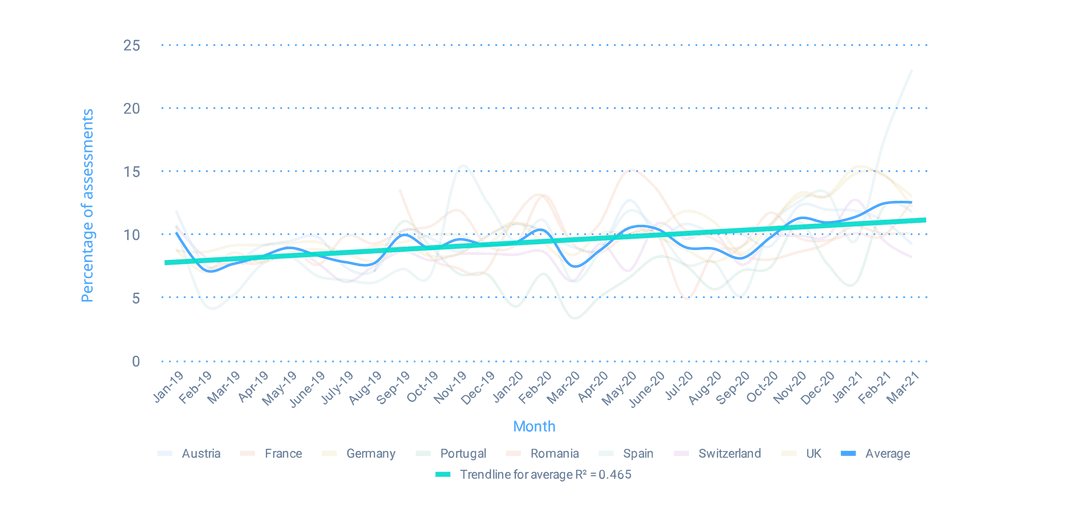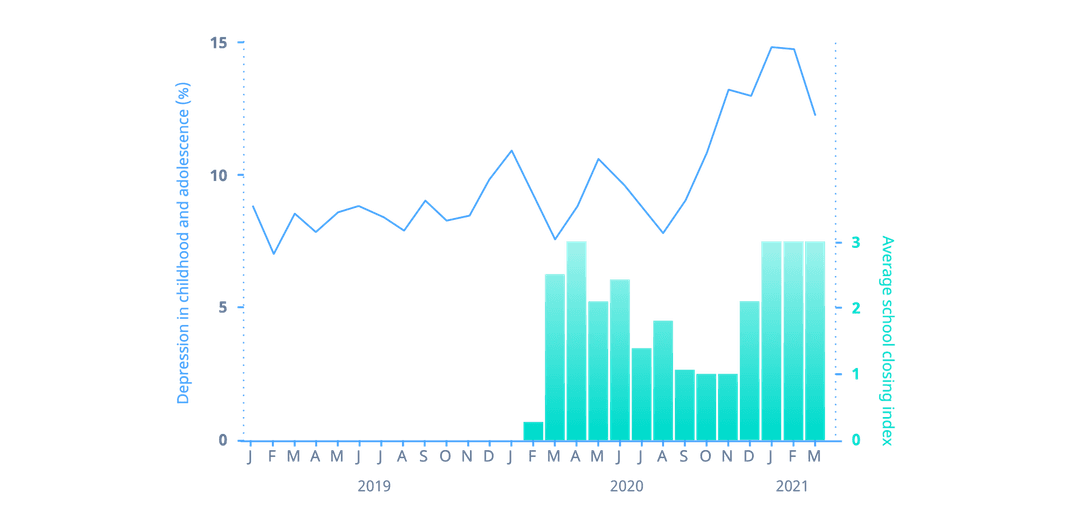Tracking mental health trends during the pandemic

According to The Children’s Society, 1 in 6 people under 18 are likely to have a mental health problem. But astonishingly, 75% of those people don’t get the care they need.1
The pandemic has turned the world upside down for young people during the most formative time of their lives. That means this mental health crisis is more urgent now than ever.
To understand the impact of the pandemic on young people’s mental health, we delved into Ada data to look for trends.
We reviewed 200,000 Ada assessments completed for users under the age of 18 between January 2019 and March 2021. We included data from 8 European countries to minimize the effect of seasonal differences on mood in our statistical analysis.

Let’s take a look at what we discovered.
How did the pandemic impact young people’s mental health?
Across all 8 countries, the average proportion of assessments suggesting depression in under 18s rose from 7.5% in March 2020 to 12.6% in March 2021. That’s a 67% increase.
With such a drastic increase in assessments suggesting depression, we dug a little deeper into the data to see if we could identify potential causes.
67% increase in assessments suggesting depression in under 18's

Can we identify any causes?
School closures during lockdown have made it much more difficult for kids to socialize, learn, and develop as people. We hypothesized that this may be a factor in the increased rates of depression we observed in our assessment data.
Extracting school closure data for all 8 countries from the Oxford Covid-19 Government Response Tracker2, we analyzed the effect of shutting schools on young people’s mental health.
Taking differences between countries into account, we identified a correlation between school closure and depression, with an average 3.1 percentage point increase in the frequency of assessments suggesting depression across all 8 countries. Statistical analyses confirmed this link as significant (P<.001).

This is an important finding as it could help inform future pandemic response measures.
The value of real-time population data insights
Despite progress in the recognition and treatment of mental health conditions, many people with mental health problems never get the care they need. Low awareness of mental health and stigma are important parts of this.
Through user research and testing, we consistently find that many users prefer the confidentiality of checking their mental health with Ada as opposed to a human. The same is true for other personal health complaints.
User confidentiality means that data insights like these can help health organizations understand their populations' health needs and design care services for people who may otherwise never receive a diagnosis. All without exposing users' personal information.
Other causes for people with mental health problems not receiving the care they need include missed diagnoses due to poor service availability, misdiagnosis resulting from low clinical awareness, and even low coverage of these conditions in AI-based symptom assessments.
With broad condition coverage, including supporting both mental health and children, Ada’s data can help organizations identify disease trends, contribute to service planning, and manage the health of their populations.
Learn more about medical quality at Ada, or get in touch.
The Children’s Society. “Children’s mental health statistics.” Accessed on 28 July 2021.
BSG. “Oxford COVID-19 Government Response Tracker.” Accessed on 28 July 2021.